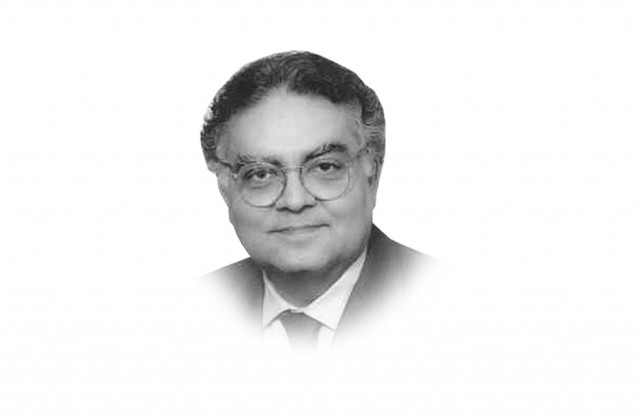Pakistan’s renaissance
Key issue is to build political consensus to defend the country, prevent a slide into anarchy and re-establish order.

The second issue is to restore harmony amongst key organs of the state such as the judiciary, executive, parliament and military as a subordinate arm of the elected government. These state organisations are repeatedly vying to enlarge their respective domains of power. This contention is creating instability within the state structure, which is weakening the capacity to fulfil its fundamental collective functions of establishing order and protection of the life and property of citizens. Since the legitimacy of the state is drawn from the fulfilment of these basic functions, weakened ability in this sphere fundamentally undermines the state.
The third issue is a rent-based economy where the resources and economic surpluses are extracted mainly for the ruling elite, who live in luxury in the face of mass poverty. Seventy per cent of the population is food insecure. The majority of the population is denied opportunities of quality education, decent healthcare facilities and access to productive assets through which they could hope for a better life and participate in the process of economic growth. The inherent injustice that is built into the very structure of the economy fuels a seething discontent. It is, therefore, necessary to change the institutional structure of the economy so that economic opportunities are opened to all citizens rather than a few.
The fourth issue is the penetration of extremist ideology into elements within the state apparatus, media, and some political parties. Consequently, the Pakistan project, as conceived by the founding fathers and which inspired two generations to hope and strive, is faltering. The idea of Pakistan was to build a democratic polity within a pluralist society. A society in which Muslims who had earlier felt constrained from pursuing their material and spiritual development would be able to actualise their human potential as much as other religious identities. The flowering of such a society would be fertilised by norms of tolerance and human solidarity.
Deep within the cultural diversity of this new country breathes the unifying sensibility of an ancient Sufi tradition: the apprehension that adoration, beauty and truth combine to constitute the ligament with God; that these transcendent modes of human consciousness are based on connecting with the human community. This connection with others opens the possibilities of love, freedom and creativity. All this now inhabits the silences of a society bludgeoned by bigotry, hatred and fear. It is these silences and the dormant potential they signify that the great contemporary Sufi poet Najam Hussain Syed suggests when he writes: “Somewhere on the slopes of silence, beat the drums of the unsaid”.
Extremists fear freedom. They are essentially divorced from a sense of beauty, wherein glows the being of human kind. Therefore, resisting extremism involves reconnecting with the wellsprings of our humanity: love, freedom and beauty. This requires a cultural struggle: art and literature that would revitalise the aesthetic sense. Social scientists, too, ought to develop a fresh interdisciplinary perspective for the human development of society. Thus, artists, poets and scientists could, by creating a counter-consciousness to the extremist mindset, initiate Pakistan’s renaissance.
Published in The Express Tribune, December 3rd, 2012.













COMMENTS
Comments are moderated and generally will be posted if they are on-topic and not abusive.
For more information, please see our Comments FAQ